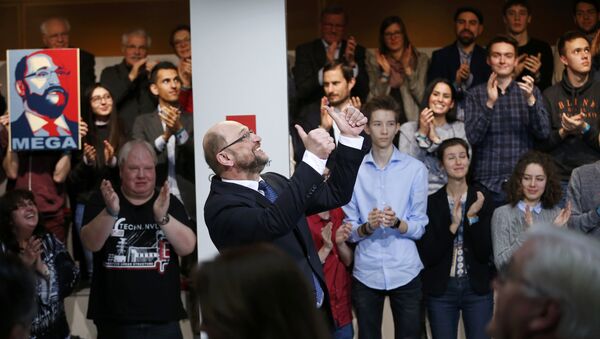According to the recent DeutschlandTrend survey conducted by German broadcaster ARD, if the election were to be held right now the SDP would get 28 percent of votes which is 8 percent more than a month ago; meanwhile, the Christian Democratic Union and Christian Social Union grouping (CDU/CSU, also referred to as the Union) would’ve only been able to secure 34 percent of votes, displaying a three-percent decrease in approval during the last month.
Furthermore, the poll reveals that if the Federal Chancellor was to be elected directly rather than by the Bundestag, at least 50 percent of voters would’ve supported Schulz, as compared to 34 percent of Merkel’s supporters.
Furthermore, half of the respondents said they would like to see a SDP-led government while only 39 percent want CDU/CSU to be in charge.
It should be noted however that even if SDP comes second in the upcoming election, Martin Schulz may still become the country’s next chancellor. If the gap between the two parties’ results is small enough and since the victor is very unlikely to secure enough votes to form a non-coalition government, SDP might have just enough clout to dictate the terms of such an alliance to the Union instead of vice versa, paving the road to chancellor’s seat for Martin Schulz.
Also, if CDU/CSU proves to be uncooperative, SDP may instead form a coalition with the Left and the Green, the so called ‘red-red-green coalition’, which would also effectively result in Schulz becoming a chancellor.
And while it may be way too early to try and accurately predict the outcome of the election, which is scheduled to be held on September 24, the current tendencies definitely do not bode well for Angela Merkel’s future as German Chancellor.



